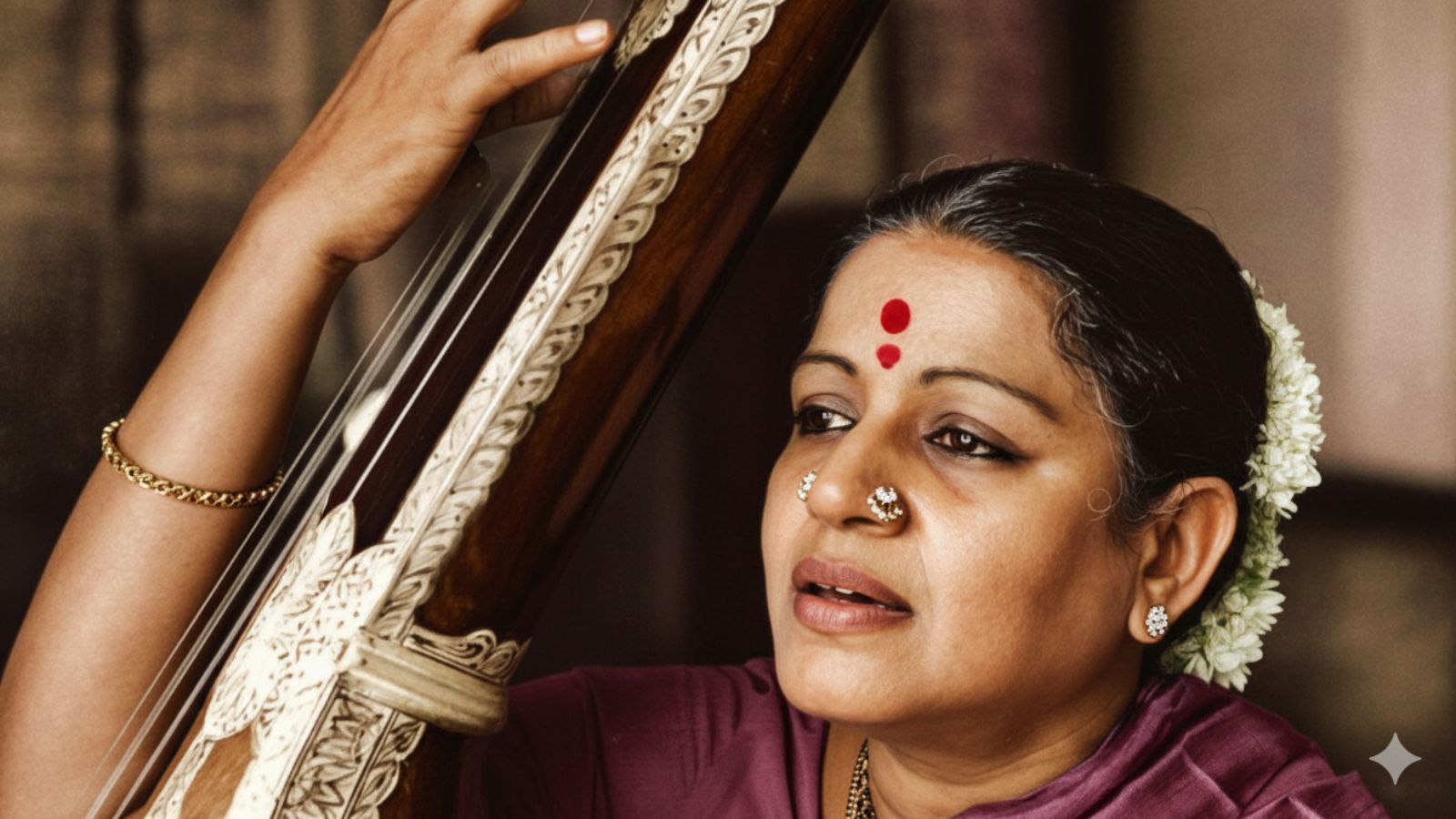Madurai Shanmukhavadivu Subbulakshmi, popularly known as M. S. Subbulakshmi, was born on September 16, 1916, in Madurai. Her mother, Shanmukhavadivu, was a veena player, and their home often hosted musicians who shaped young Subbulakshmi’s musical instincts. She gave her first public performance at the age of 11 at the Madras Music Academy, astonishing audiences with her clarity and precision.
Her early training came from her mother and Madurai Srinivasa Iyengar, before she later refined her art under the great Semmangudi Srinivasa Iyer. She also drew inspiration from Ariyakudi Ramanuja Iyengar and violin maestro T. Chowdiah, influences that broadened her repertoire and style.
By the 1930s, she was a rising star in Carnatic music, and she soon reached wider audiences through cinema. In Sevasadanam (1938), an early Tamil social reform film, she played Sumathi, a young woman in an oppressive marriage who chooses independence through service. She gained lasting fame portraying the saint-poet in Meera (1945 in Tamil, 1947 in Hindi), where her soulful renditions of bhajans like Hari Tum Haro resonated deeply across the country.
Though cinema enhanced her popularity, Subbulakshmi devoted herself principally to Carnatic music. Known for her discipline, spiritual depth, and emotional resonance, she carried the tradition to global stages with performances at the Edinburgh Festival in 1963 and at the United Nations in 1966.
One of her lasting contributions was popularizing Annamacharya’s 15th-century keerthanas. With her unique blend of devotion and artistry, she infused life into compositions that had long remained in manuscripts, giving them pan-Indian recognition. Pieces such as Bhavamulona and Jo Achyutananda remain inseparable from her voice. In recognition of her unparalleled role in bringing Annamacharya’s works to the masses, the Tirumala Tirupati Devasthanams (TTD) set up her statue in Tirupati, honoring her as a cultural icon.
In 1998, she became the first musician to receive India’s highest civilian honor, the Bharat Ratna. Equally admired for her humility and philanthropy, she donated much of her earnings to social causes. She passed away in Chennai on December 11, 2004, leaving behind a legacy cherished across generations.



